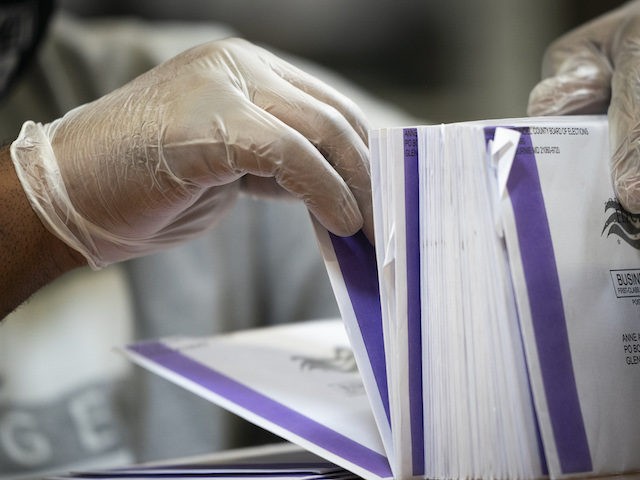Heritage Action Executive Director Jessica Anderson released a sharp statement ahead of this week’s vote to proceed to debate S. 1, known as the For the People Act, warning the bill is “irredeemable” and nothing more than a “left-wing power grab and an attempt to rig the rules of our elections.”
“The Corrupt Politicians Act would be a complete federal takeover of our elections, delivering more power than ever to federal politicians and bureaucrats to control elections in every state,” she said in a statement.
“The bill is irredeemable — no matter what changes Sen. Schumer or Sen. Manchin suggest, the bill is ultimately a Left-wing power grab and an attempt to rig the rules of our elections,” she continued, urging every senator to vote “NO.”
The Democrat-led House passed the For the People Act in March, despite GOP warnings that it would compromise election integrity and effectively nationalize U.S. elections. The bill itself would strip states of their ability to implement basic election safeguards, from cleaning voter rolls to requiring photo ID.
The 791-page bill would prevent states from pushing ineligible voters from their voter rolls, require nationwide vote-by-mail without photo ID, allow unlimited “ballot harvesting,” nix photo ID requirements, mandate curbside voting, allow politicians to use campaign funds for personal use, and also restrict challenges to the measure to the federal court system in D.C., as Breitbart News extensively detailed.
However, recent surveys show Americans disagreeing with key facets of the measure.
A Monmouth University survey released this week, for example, showed 80 percent supporting requiring voters to show a photo ID to vote. A majority support it across party lines — 62 percent for Democrats, 87 percent among independents, and 91 percent among Republicans.
Twenty attorneys general signed a letter in March addressed to House and Senate leaders, deeming the legislation as unconstitutional and warning it “would dismantle meaningful voter ID laws by allowing a statement, as a substitute for prior-issued, document-backed identification, to “attest[] to the individual’s identity and . . . that the individual is eligible to vote in the election”:
This does little to ensure that voters are who they say they are. Worse, it vitiates the capacity of voter ID requirements to protect against improper interference with voting rights. Before the advent of voter ID laws, partisans stationed at polling places could challenge voters based only on suspicions about identity, a process that prompted concerns about voter intimidation. Robust voter ID laws, however, require all voters to present photo identification, i.e., objective, on-the-spot confirmation of the right to vote that immediately refutes bad-faith challenges based on vaguely articulated suspicions. Fair election laws treat all voters equally. By that standard, the Act is not a fair election law
“With confidence in elections at a record low, the country’s focus should be on building trust in the electoral process. Around the nation, the 2020 general elections generated mass confusion and distrust—problems that the Act would only exacerbate,” they wrote, vowing to “seek legal remedies to protect the Constitution, the sovereignty of all states, our elections, and the rights of our citizens” if the bill passes in both chambers and is signed into law.

COMMENTS
Please let us know if you're having issues with commenting.